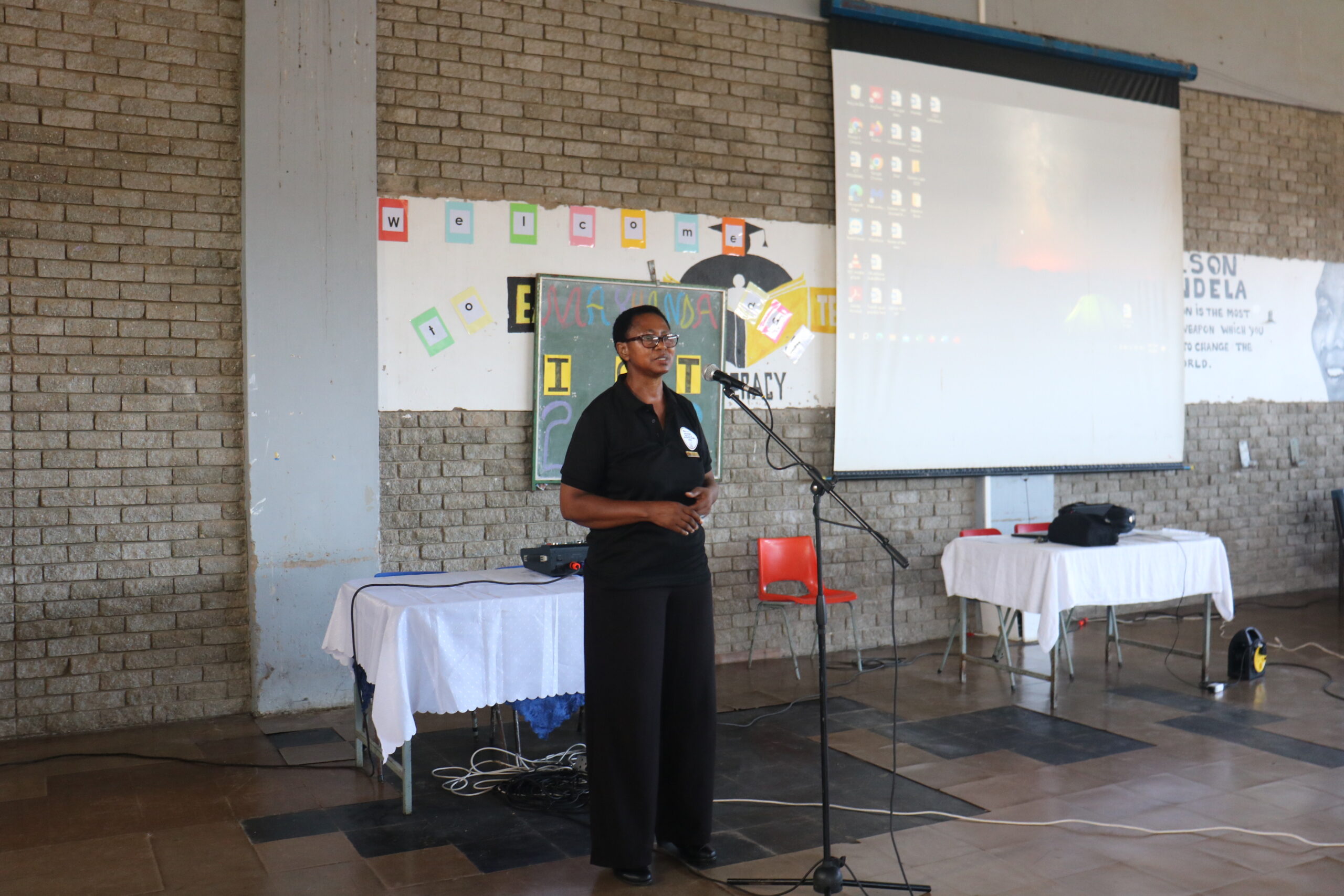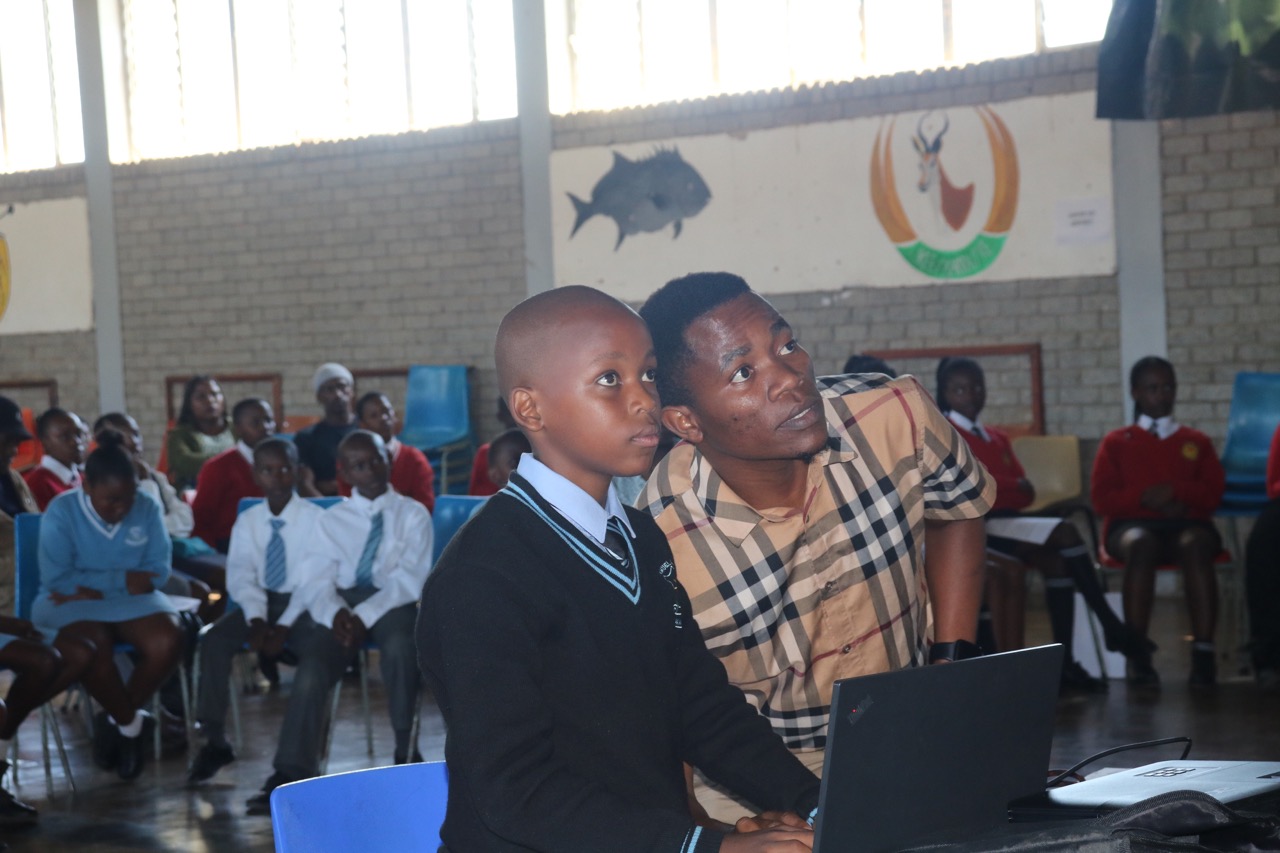By Benny Mojela
We live in the digital generation where it’s becoming increasingly difficult to be an active member of society without having digital skills. The Sarah Baartman Department of Education, in partnership with Rhodes University, hosted an ICT Day for 13 local primary schools in Makhanda in March. These schools demonstrated how to use different ICT applications to assist them with their school work and meet the technology demands of this modern society.
Sarah Baartman, District Curriculum Education Specialist (CES) Nosiphi Hanisi, said the day was created to help sharpen the learners’ skills and celebrate ICTs in Makana. “This event recognises and acknowledges the importance of ICTs in education, which is key [in teaching and learning],” she said. She also added that technology is essential for different careers. “Learning technology at such a young age will set you up for economic independence, and jobs will depend on technology and innovation.”
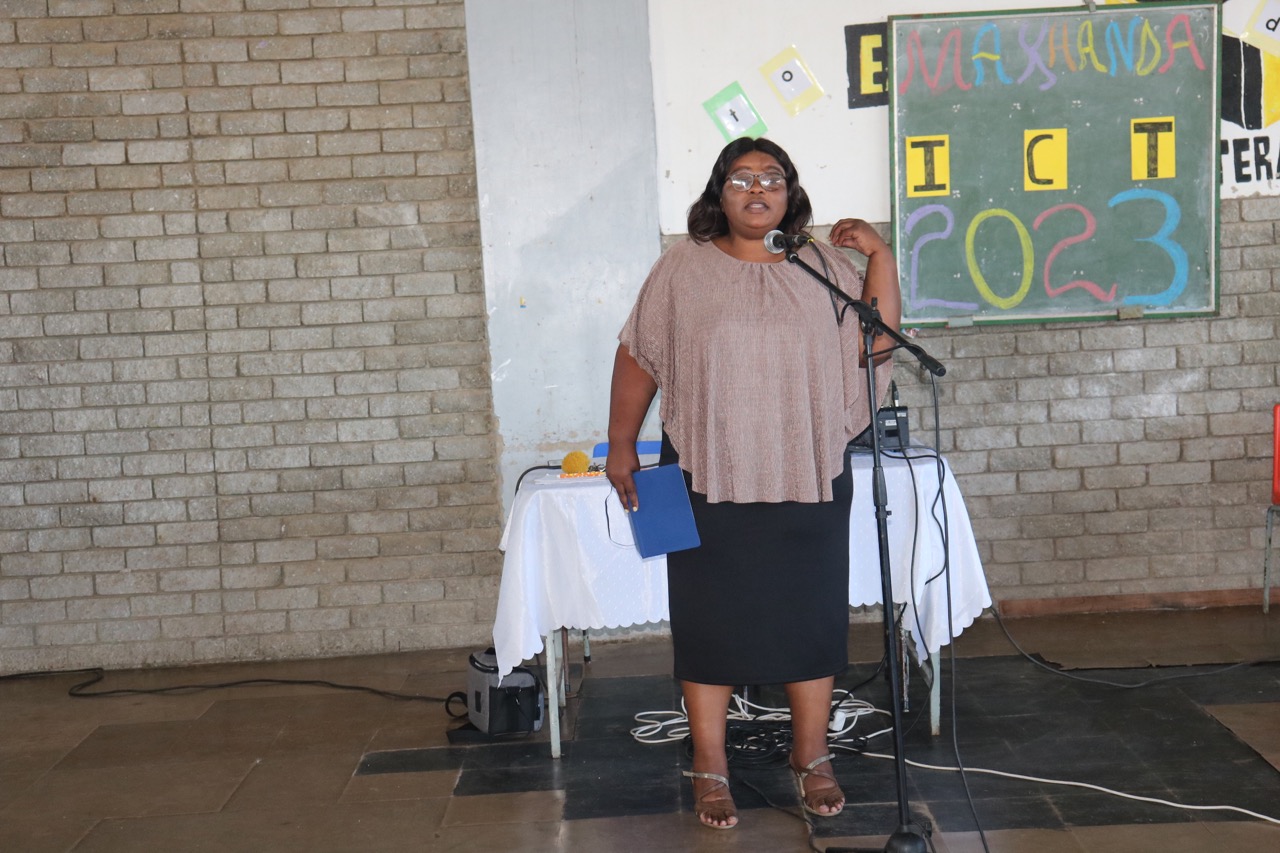
On the day, each school had 20 minutes to present its technology application.
Samuel Ntlebi Primary School presented Dance Mat typing, which teaches learners how to touch type using the home row method. Learner Angalaka demonstrated how to use the application for the audience.
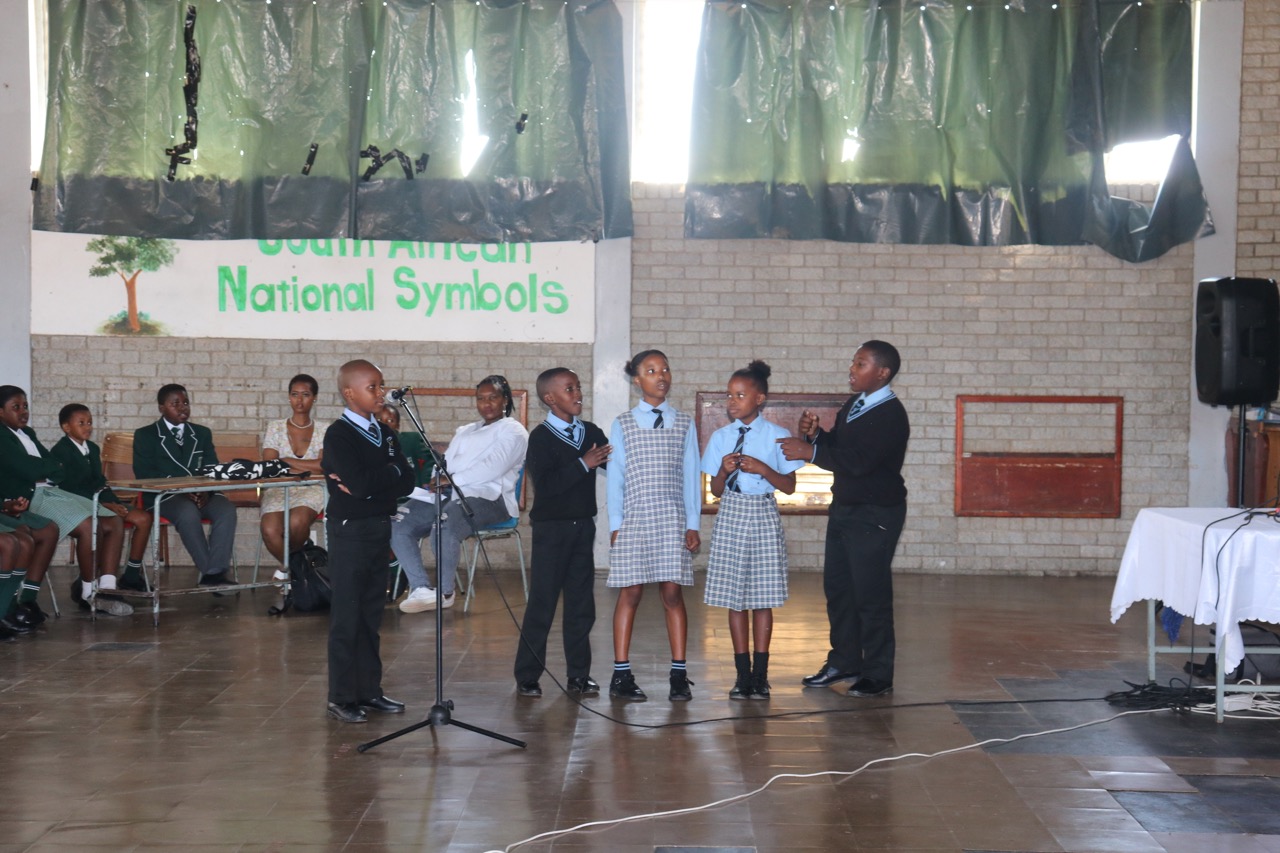
Grahamstown SDA Primary’s presentation on Encarta illustrated how important the tool was for their education. One learner showed that the device is like having a wealth of information at your fingertips. Another learner said that Encarta changed the way they learn. “I like Life Skills and Physical Education. When our teacher was teaching us, I went to Encarta to help me with exercise,” said learner Aqhama. The other learners showed how Encarta could be used in different subjects.
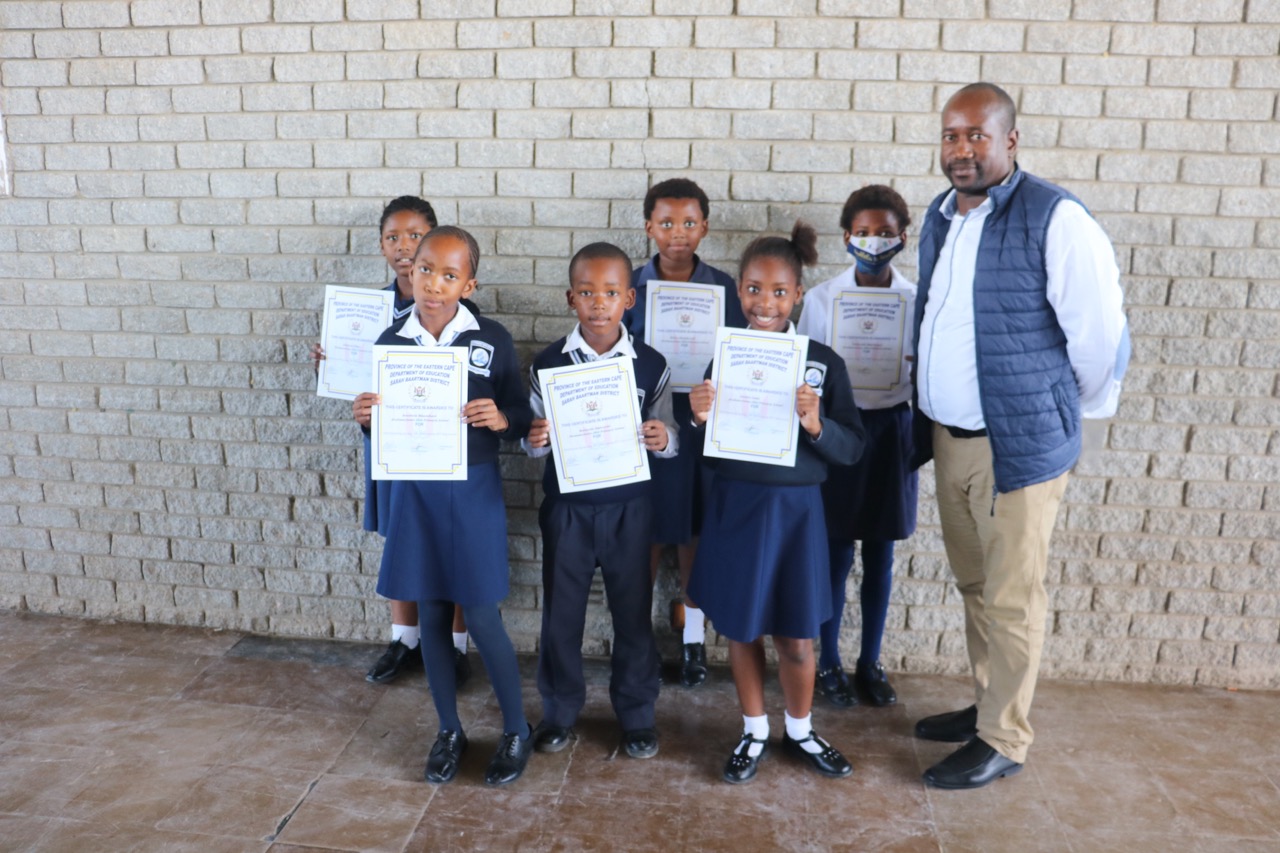
NV Cewu Primary School presented on Zoom, MS Teams and Facebook Live. NV Cewu learner Mbulelo Yawa said, “Facebook live is a feature of Facebook that lets users livestream directly to the social platform where viewers can react, share and comment”. He mentioned that you could go live from a personal account, a group or a page, and you must be 13 years or older to use this service. Singanaka Ncebeka, another learner at the school, explained how Microsoft Teams works; she said, “It’s a business communication developed by Microsoft, and it allows users to send messages to a chatroom and raise hands during meetings.” The learners also explained how Zoom works.
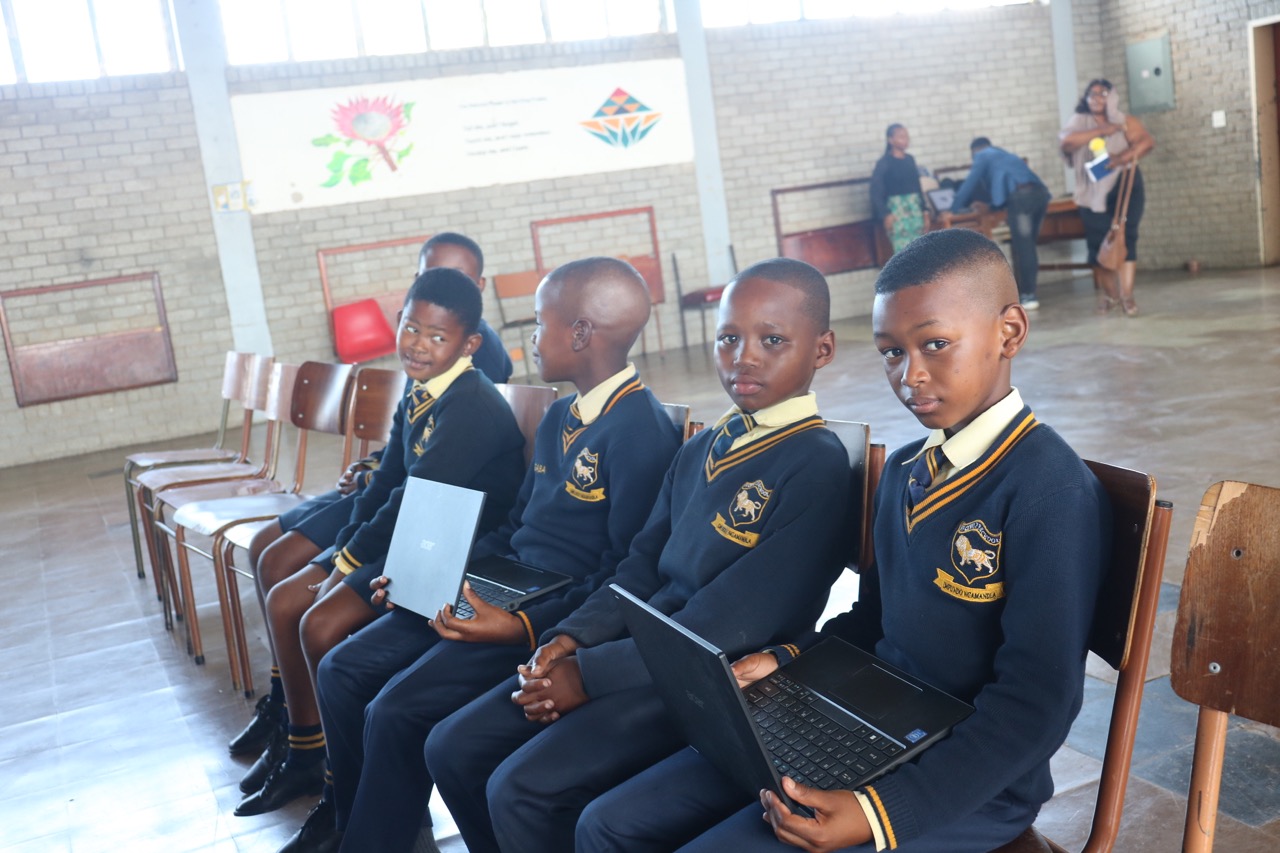
The George Dickerson Primary School learners did a presentation on Canva, which is a graphic design tool. They explained that it could be used to design or edit videos, posters, invitations, cards and presentations. It’s a free platform and accessible to anyone with a valid email address to create an account.
The Grade R learners from the school, accompanied by their teacher Thabisa Booi, demonstrated how to use an App called Maths Adventures, which helps learners learn how to count from 1 to 9 and backwards by pressing numbers they recognise. They also demonstrated how to use a think-fun coding program that introduces analytical skills and patterns to learners by moving around blocks in space. This was the youngest group to present, and the participants were impressed by the courage of the learners.
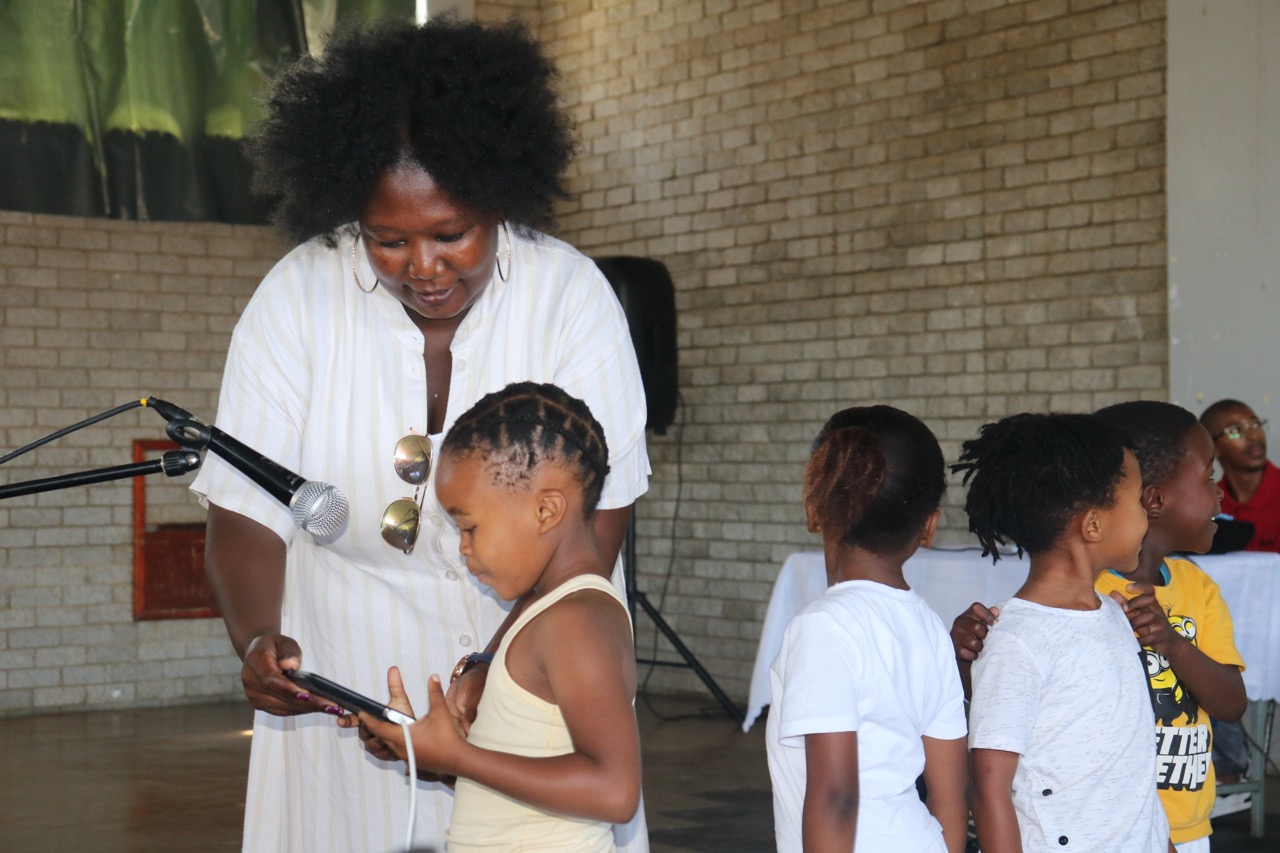
Ntaba Maria Primary School learners did a presentation on Microsoft Word explaining that it is used to make professional documents like letters, reports, books and informative texts. The learners said that Word is the most accessible tool teachers and other professionals can use.
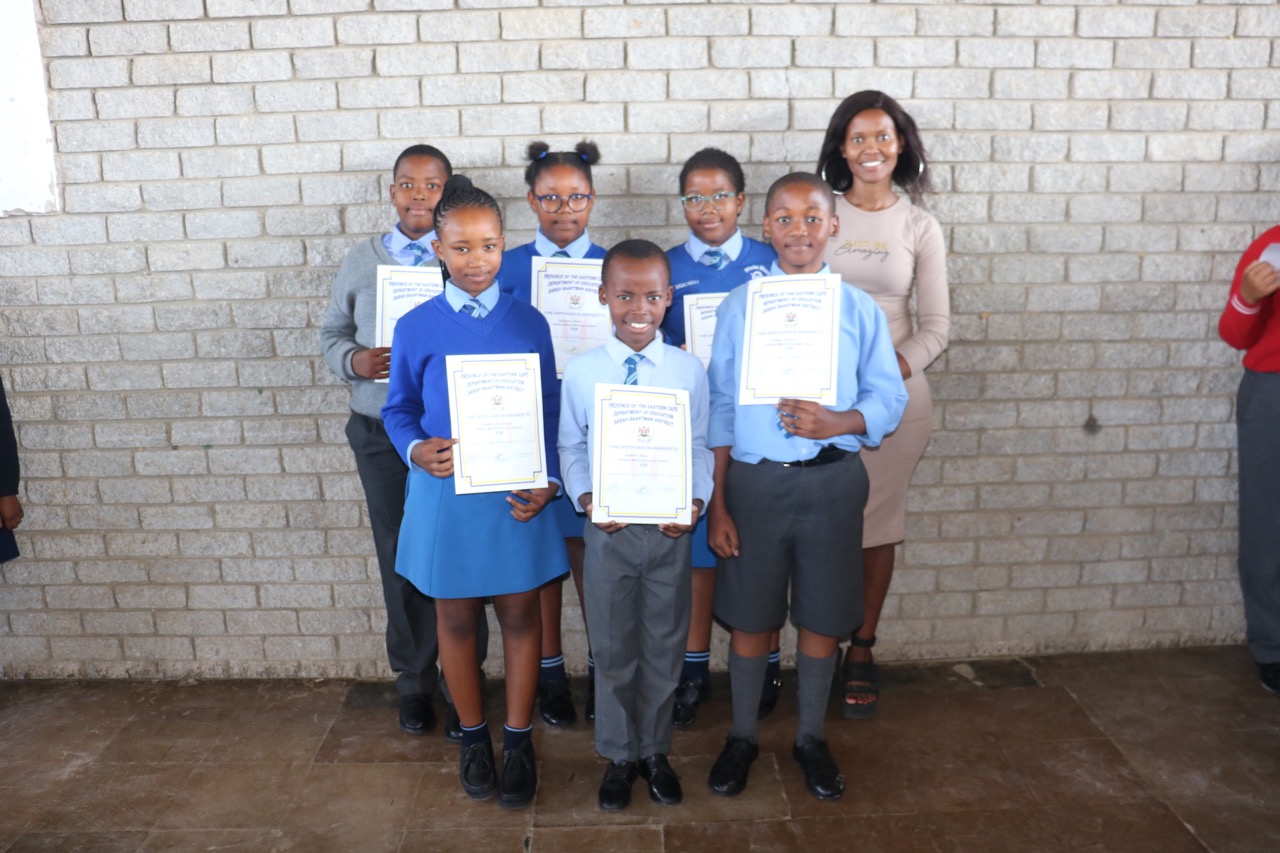
Fikizolo Primary School learners explained an ICT program called the Click Foundation. It includes fast phonics, reading eggs, and reading express. Short phonics helps Grade R to 1 learners develop reading skills, Reading Eggs helps Grade 2 to Grade 6 improve spelling and pronunciation, and Reading Express emphasises English and literature. The pupils said technology has made their learning experience much better and more fun because it involves audio, video and images.
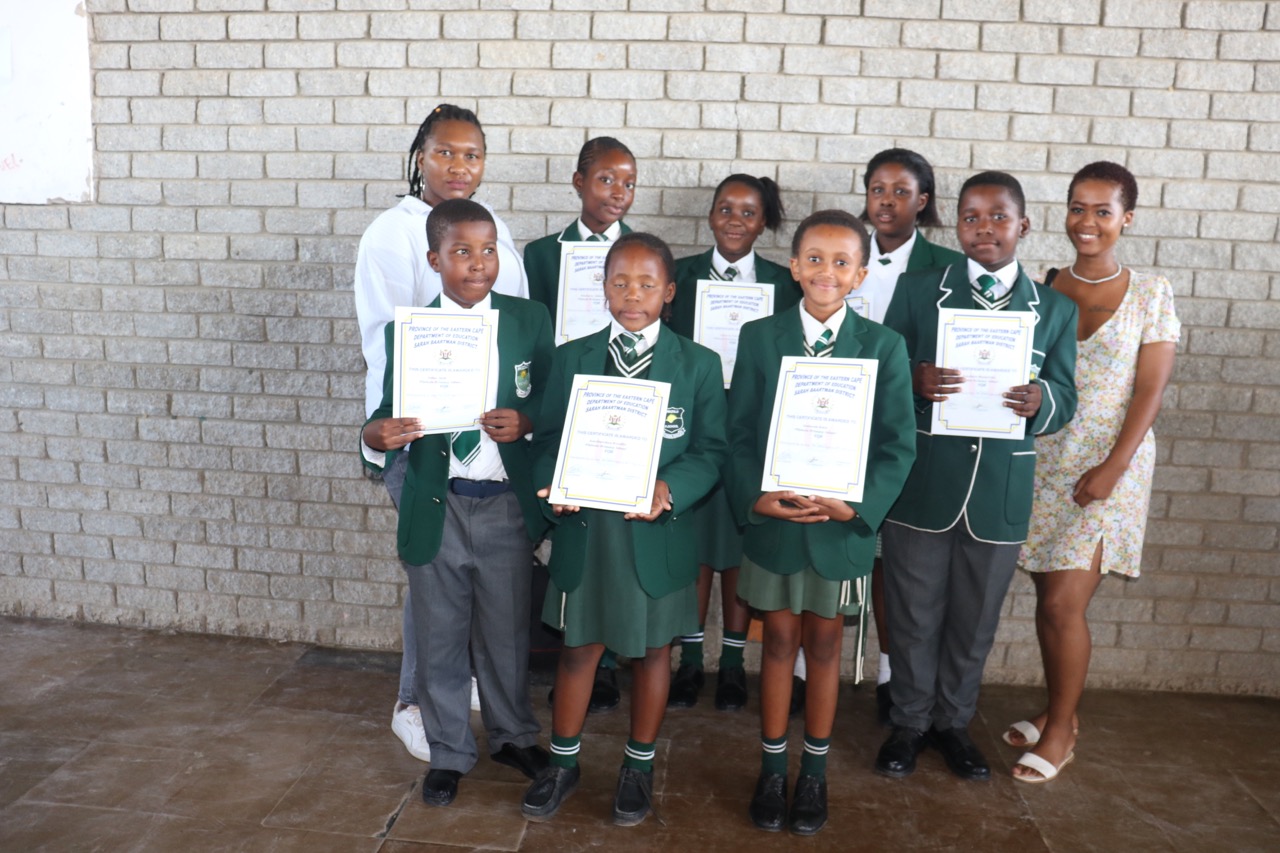
Good Shepherd Primary School learners’ presentation was on the app Reading Eggs which highlights the importance of blending sounds to make a word. They also did a presentation on Microsoft Word and explained the importance of using the save feature to avoid losing your work on Microsoft in case of a disruption.
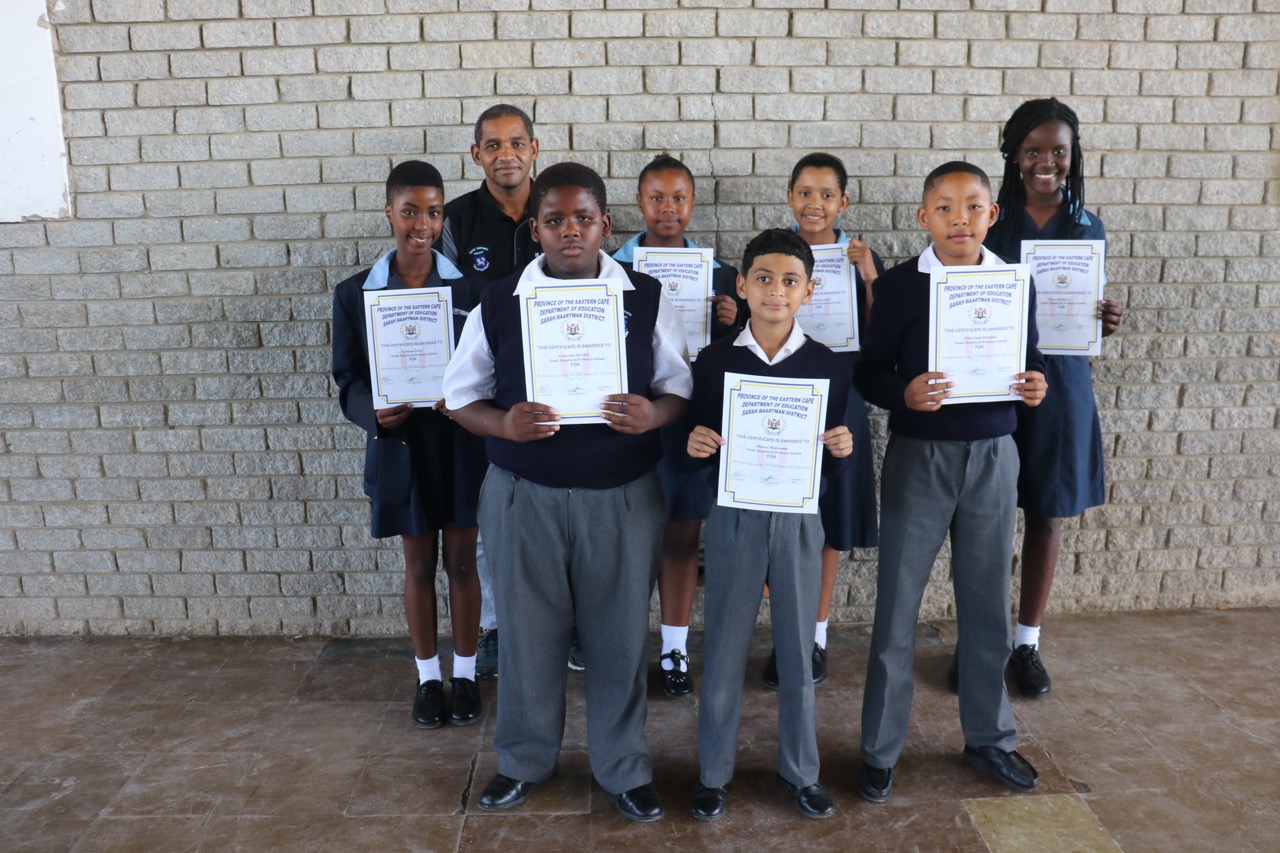
Makana Primary School presented an e-dictionary. During the presentation, they mentioned that there is both the e-dictionary and thesaurus app. These apps are only available on laptops and desktops, not on cell phones. For the e-dictionary demonstration, they looked at language training and word games. These have spelling, grammar, vocabulary and dictation. They went to demonstrate other exercises using online apps.
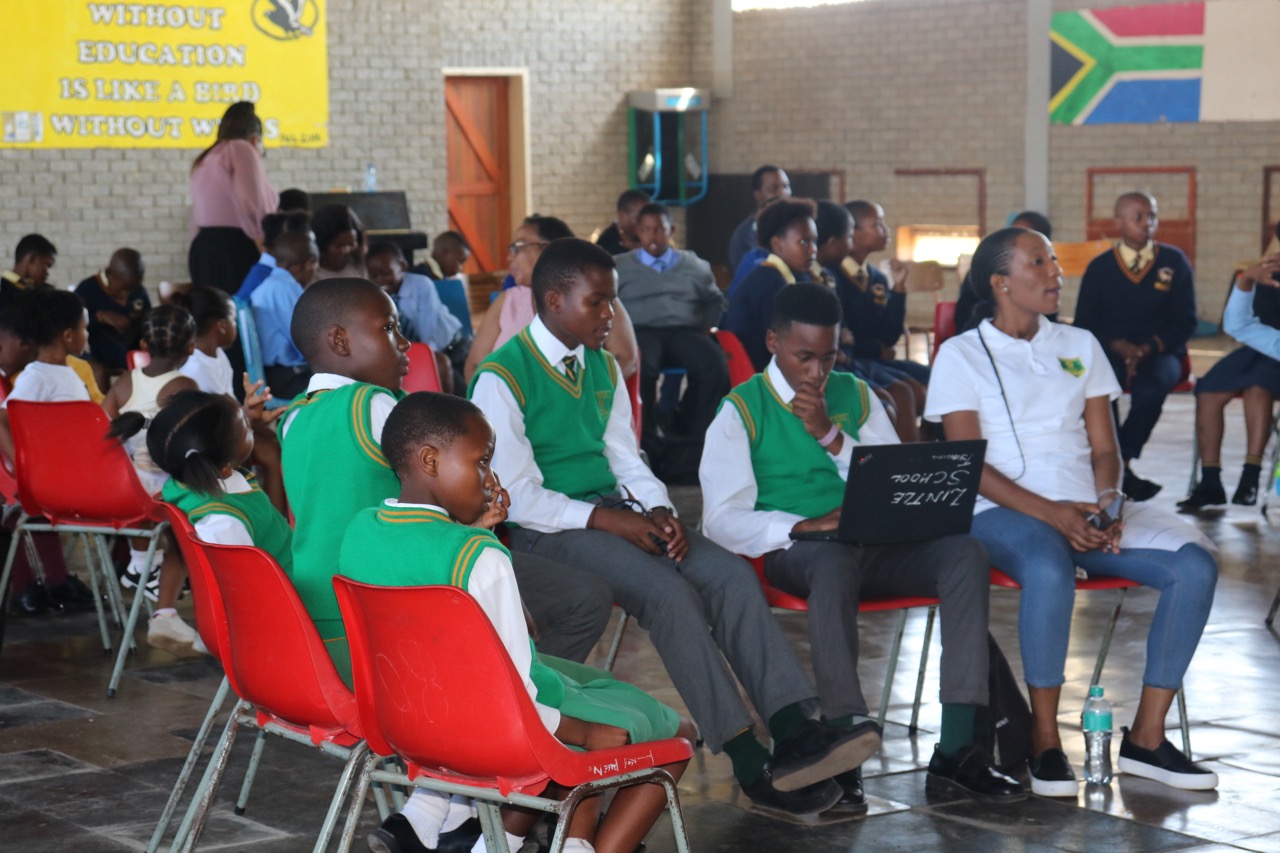
CM Vellem Health Promoting School presented how to download and use Gmail on phones and laptops. The girls explained the different categories of the Gmail menu, including inbox, draft and trash. Quite interestingly, many people who use email services don’t know what CC and BCC in the email address box stand for; the girls explained that CC means Carbon Copy and Blind Carbon copy, allowing the owner of the entered address to receive a copy of the email. They explained that an attachment is added by clicking the icon that looks like a paperclip. They concluded by explaining the disadvantages of using email: without data and a smartphone, you cannot send or receive emails.
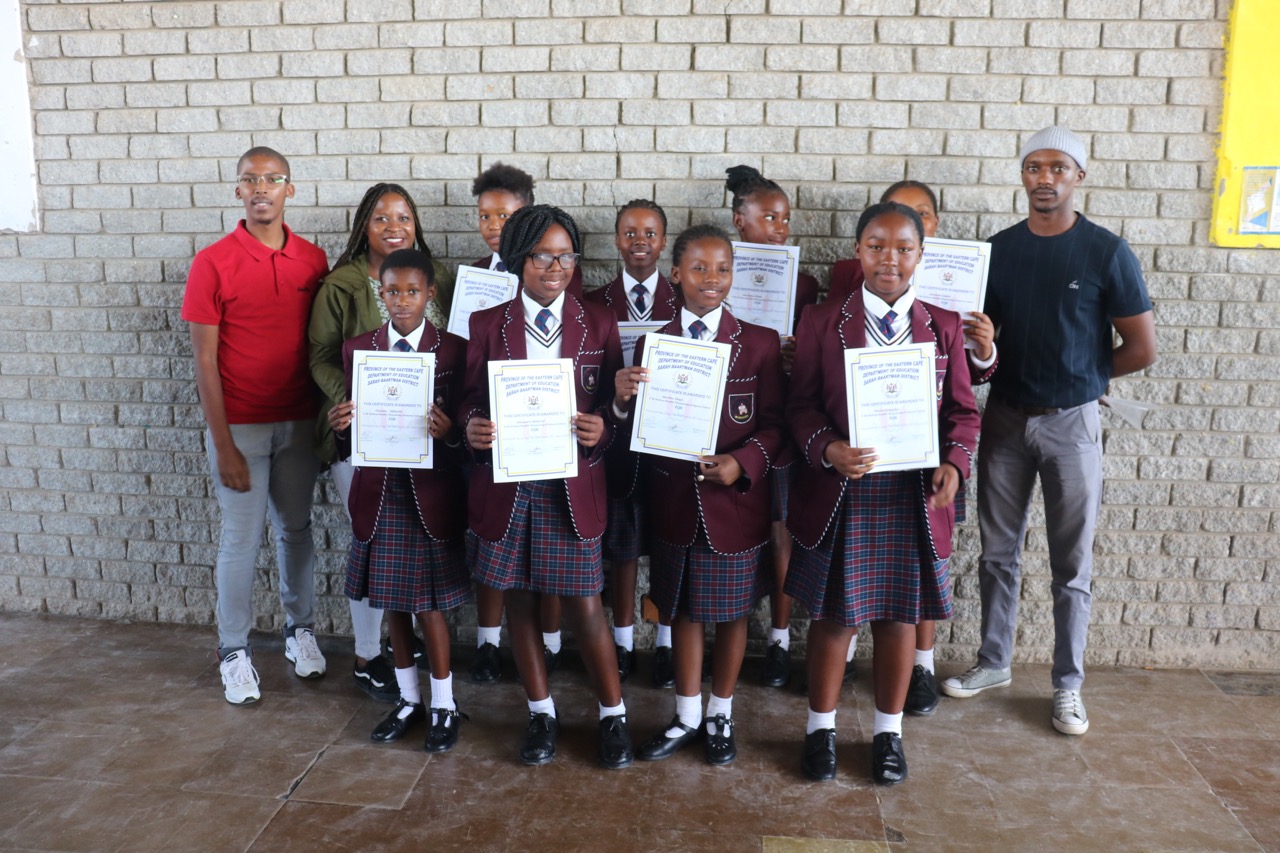
Samuel Ntsiko Primary made a presentation on coding and robotics. Melissa Chikuta, a learner at Samuel Ntsiko, explained Coding and robotics as “a subject aimed at preparing learners to solve everyday problems, think critically and work collaboratively with one another”. Chikuta and her fellow learners explained that when we are coding, we basically give a robot instructions. They demonstrated their coding skills on Scratch software, where they instructed a cat to make a ‘meow’ sound and move in various directions. They concluded by talking about an App called C3 which allows you to choose a topic and a grade, for example, Grade 4 arithmetic focusing on multiplication.
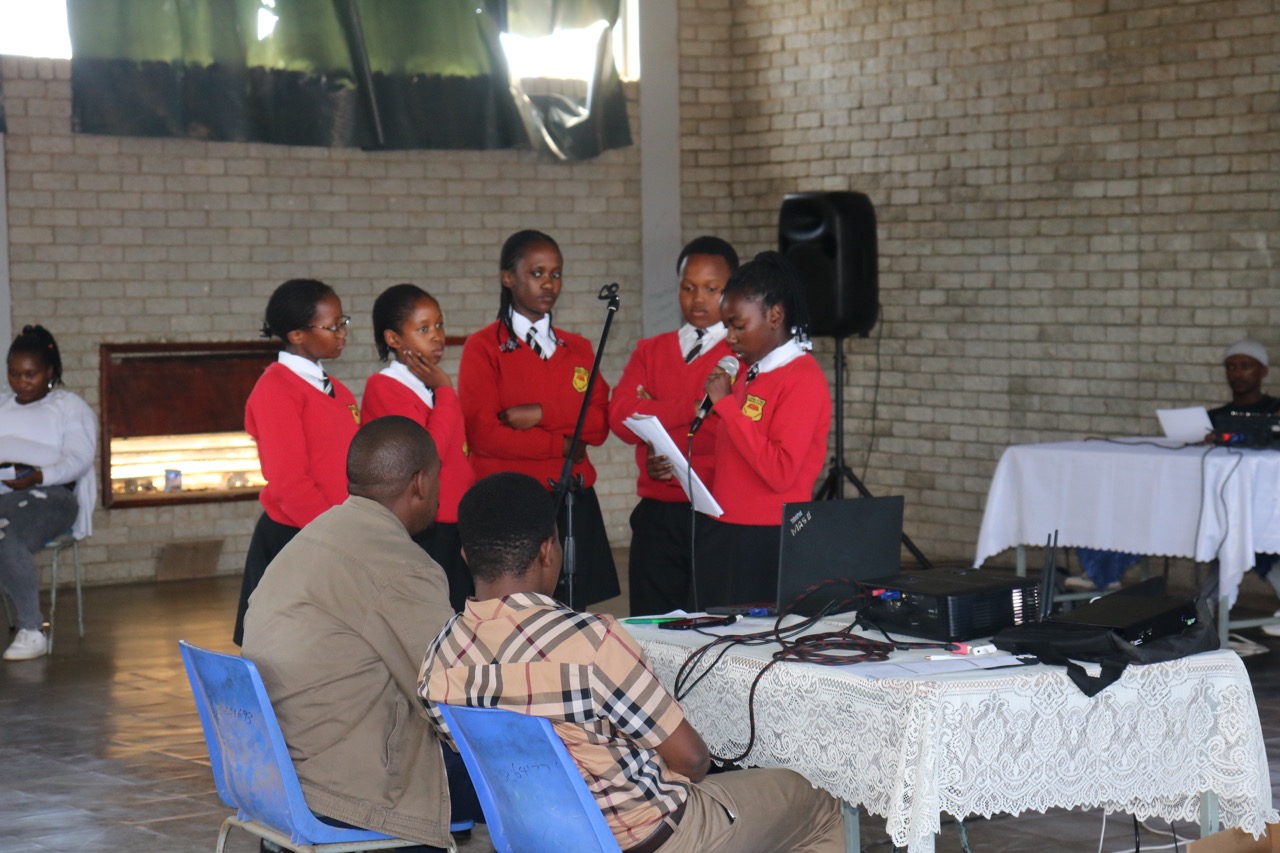
Tantyi Primary School learners explained how PowerPoint, Excel and Microsoft Word work. They said, “PowerPoint is a workplace application designed for making professional presentations, and Excel is a spreadsheet developed by Microsoft, and it works with numbers”. The learners also demonstrated how the applications work in detail.
Archie Mbolekwa Primary did a presentation on English and Maths. The English lesson was on synonyms. To demonstrate the use of technology in English teaching, the learners did an online quiz. They also used online applications in order to practice Mathematics skills
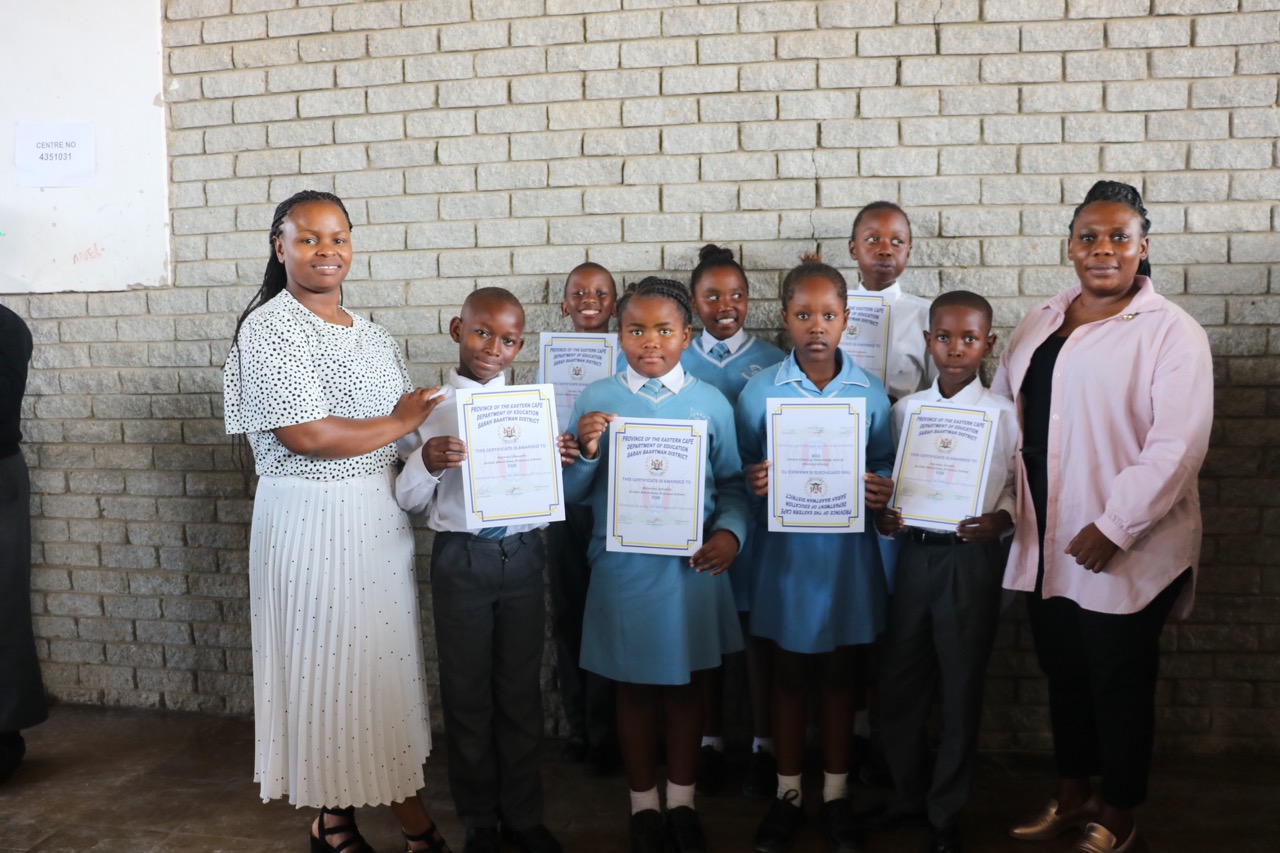
To demonstrate ICT use in modern society, two Rhodes University master’s students specialise in ICT education. They gave presentations on Cyber Security and 21st Century Careers.
The first presentation was from a Rhodes Masters student, Chikondi Sepula, who presented on cyber security. “Cybersecurity involves techniques and skills that help secure various digital components from unauthorised digital access,” he said. He gave examples of cyberattacks like malware, man-in-the-middle, social engineering and password attacks. He focused on social engineering attacks and explained them as a situation where an attacker contacts a user and poses as a technical helper attempting to update some important information. He created awareness of unethical hacking techniques, like tailgating, dumpster diving, phishing, smishing, and shoulder-surfing.
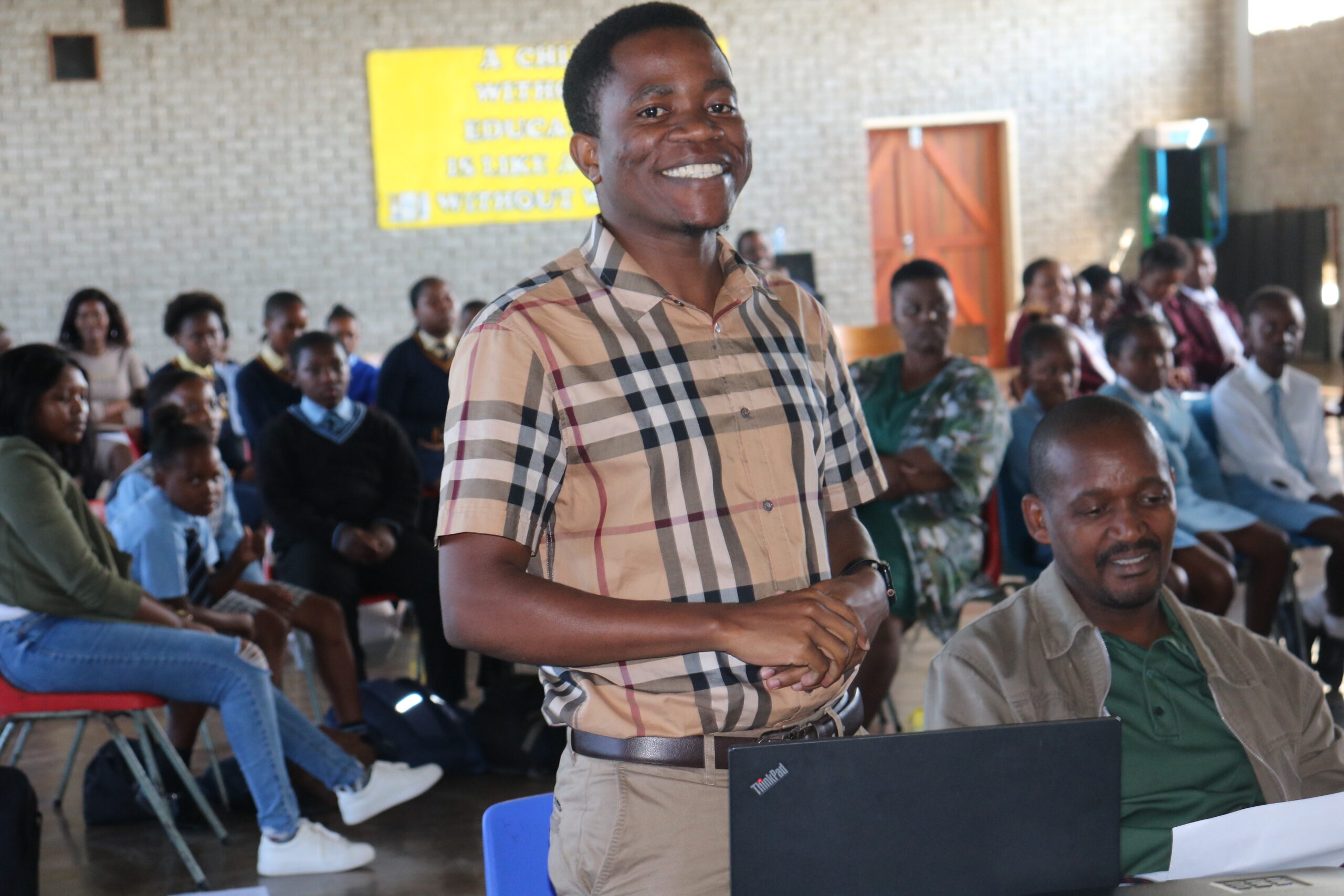
The second presentation from Rhodes masters student Blessing Hwancha was 21st Century Careers. Hwancha said he mainly focused on skills instead of careers in his presentation. He emphasised the importance of Mathematics from earlier grades and explained that studying Information Technology at University is impossible without doing Maths in grade 12. He added that the essential skills needed in the digital age are adaptability to technology, problem-solving and the ability to communicate using technology. He said that while technology is critical, “technology will never replace professionals, but technology in the hands of a trained professional is transformational”.
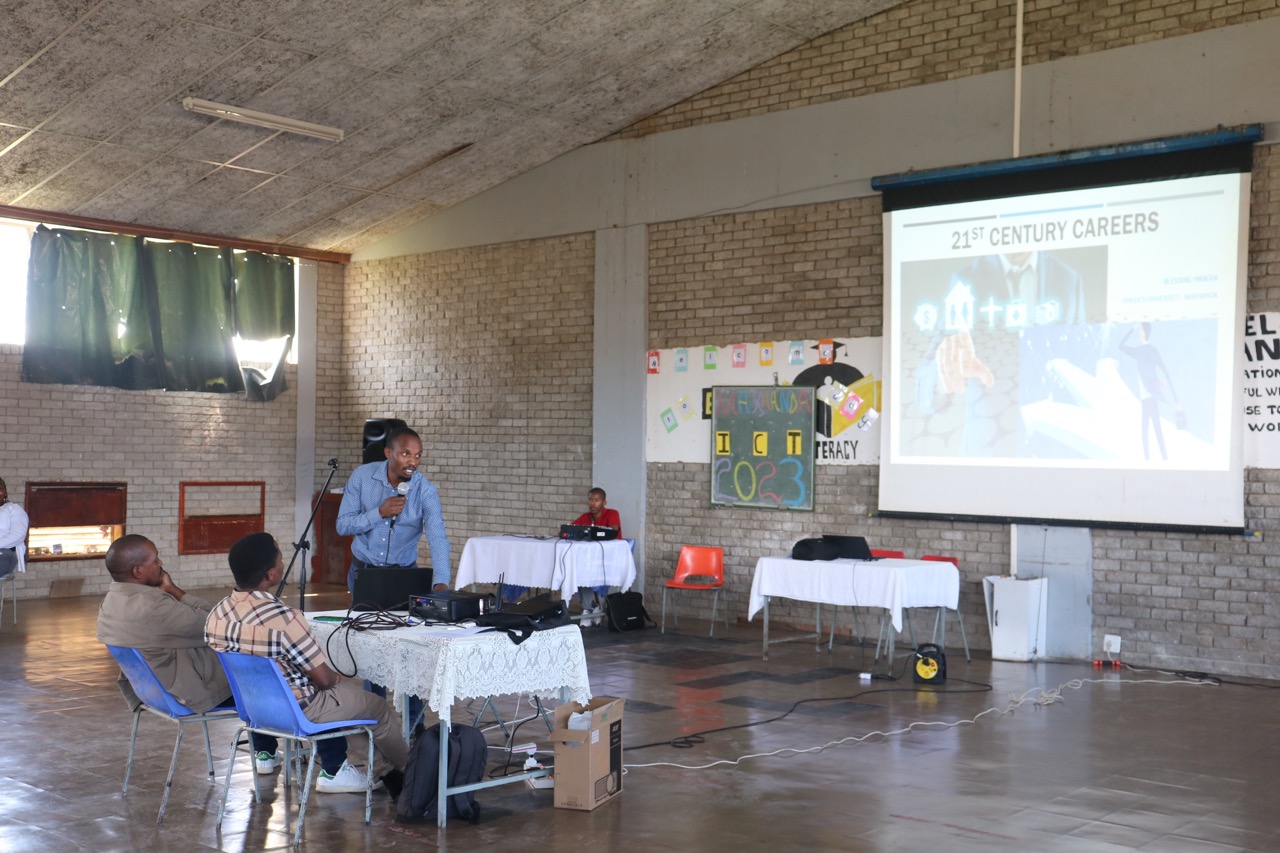
Sarah Baartman E-Learning advisor and ICT Day programme coordinator Joyce Batyi, highlighted the importance of ICTs and also thanked the teachers for working hard to prepare for the day.
